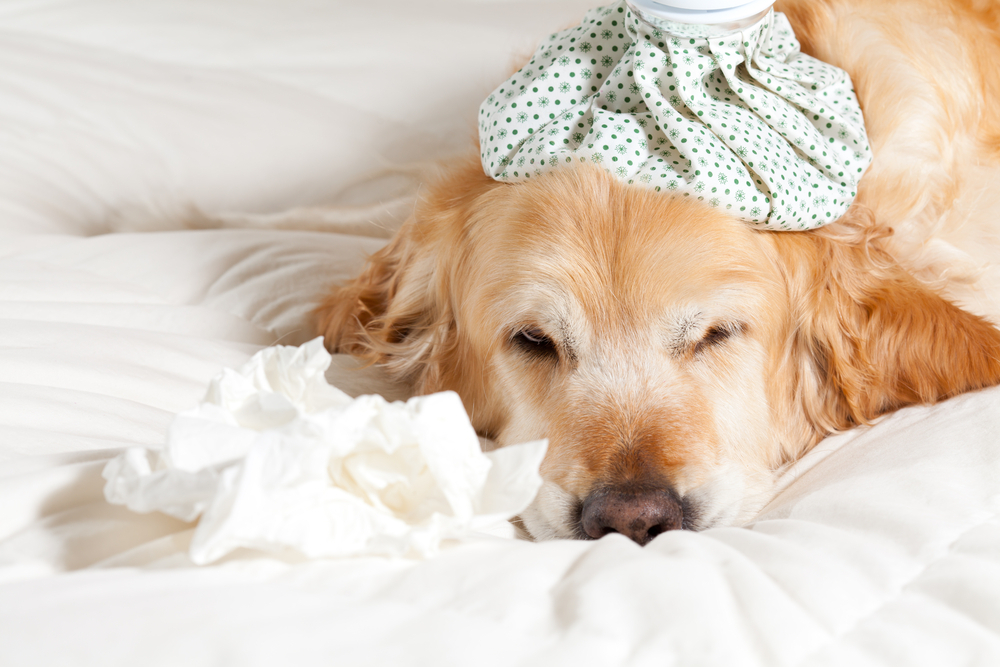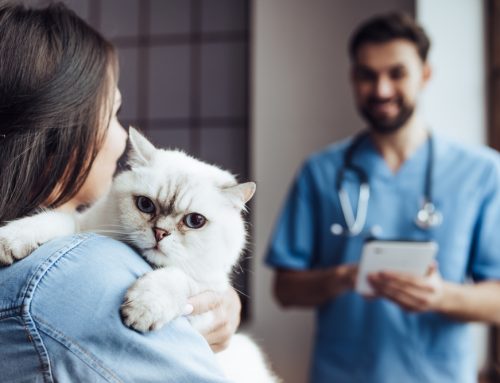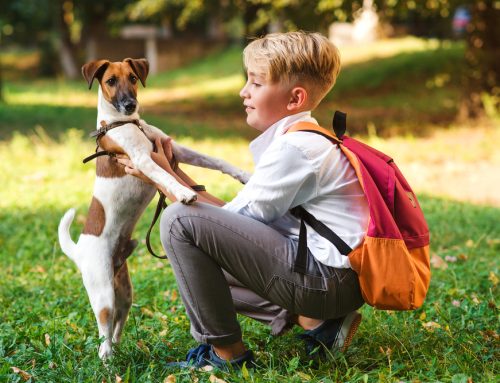Canine Influenza, commonly known as the dog flu, is a highly contagious viral infection caused by two specific types of the canine influenza virus (H3N2 & H3N8, which most dogs have no immunity for). Though canine influenza has similar symptoms to human influenza virus like fever and fatigue, the canine influenza is NOT currently known to be contagious to people.
Canine influenza is most commonly contracted at high-density dog areas such as dog parks, pet stores, boarding kennels, groomers, dog shows, and doggy daycares. The virus is capable of being transferred into your home though your hands, clothes, and shoes and transferred to your dog that way. Because of this, it’s important to practice good hygiene and thoroughly wash your hands and change clothes before handling your own pet at home if you’ve come into contact with a potentially ill dog.
As with human influenza, the symptoms and severity of canine influenza may vary from dog to dog. Here are some common symptoms to keep an eye out for:
- Decreased appetite
- High fever
- Cough
- Runny nose
- Sneezing
- Lethargy
Here are some tips to help protect and/or support your dog from the highly contagious canine influenza virus:
- Vaccinate! – At the time of this post, Oak Creek Veterinary Care has Canine Influenza vaccines in stock that help protect against both H3N2 & H3N8 types of canine influenza
- Hydration – Provide plenty of fresh water and even humidifiers to help ensure the health and proper function of your dog’s respiratory tract.
- Avoid Shared Water Bowls – Avoid shared water bowls that can harbor bacteria and viruses like canine influenza.
- Rest – Provide a restful environment and encourage light exercise to keep mucus moving.
- Eating – Stimulate appetite by wetting food with low sodium chicken/beef broth (no onions or garlic though!)
- Soft Cotton balls/pads/tissue – Dampen these with warm water and use them to wipe away mucus from your dog’s nose.
If you have more than one dog in the household, isolating an ill dog will help prevent spreading any illnesses between them, but chances are if one dog has it the other dogs will already have it as well. Since there’s also a risk of cats catching flu from dogs, it’s best to keep your cats away from any symptomatic dogs as well.
Dogs with mild influenza usually recover on their own, but influenza can progress and turn from bad to worse so it’s always recommended to have a veterinarian examine your dog. Make sure to visit the vet early on for diagnosis and supportive care instructions.
If you suspect your dog has the flu – Contact us to schedule an appointment with the veterinarian ASAP. If you have a scheduled appointment – Call from the parking lot to be let in through our back door so we are not exposing other pets in the hospital.







Leave A Comment